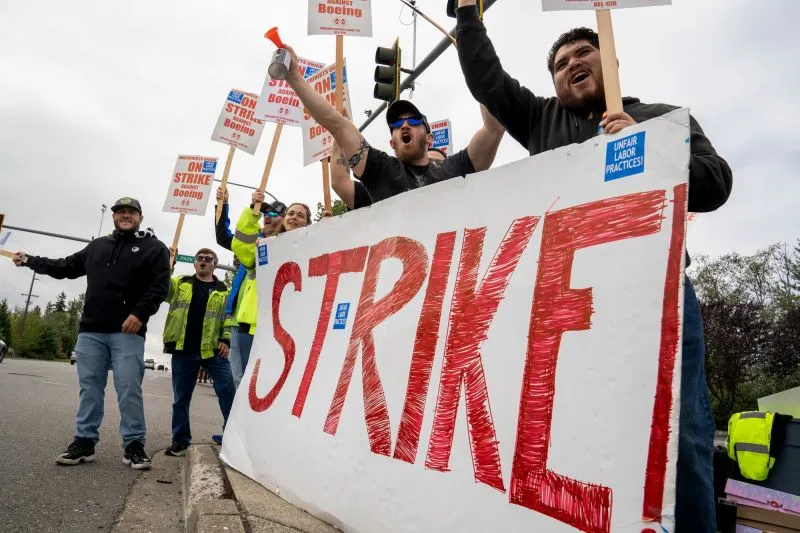Understanding Boeing's Strike Impact and Financial Turmoil

The Strike's Financial Implications for Boeing
The strike could cost Boeing more than $1 billion, complicating its already precarious financial situation. Since 2019, the company has lost $33 billion, and an extended walkout may severely disrupt its production.
Production Stagnation and Credit Concerns
- The last strike in 2008 resulted in a $1.2 billion loss, and a similar fate may lie ahead if this one drags on.
- Boeing's CEO noted that the strike jeopardizes recovery efforts, as production halts hinder cash flow.
- Fitch and Moody’s have warned that a downgrade to junk bond status could follow if losses persist.
Union Standoff and Compensation Discussions
Negotiations are expected to resume soon, but the union's strong rejection of Boeing’s pay raise proposal indicates the strike could be prolonged.
- Boeing offered a four-year contract with raises up to 25% but faced backlash from workers.
- The ongoing struggles led to a rejection of improvements after years of concessions from union members.
The Larger Picture for Boeing
Beyond the strain of the current strike, Boeing faces challenges in meeting production targets and launching new aircraft offerings, with the 777X project facing significant delays.
While challenges remain, Boeing benefits from a unique position as part of a duopoly with Airbus, ensuring demand for future aircraft despite current obstacles.
This article was prepared using information from open sources in accordance with the principles of Ethical Policy. The editorial team is not responsible for absolute accuracy, as it relies on data from the sources referenced.